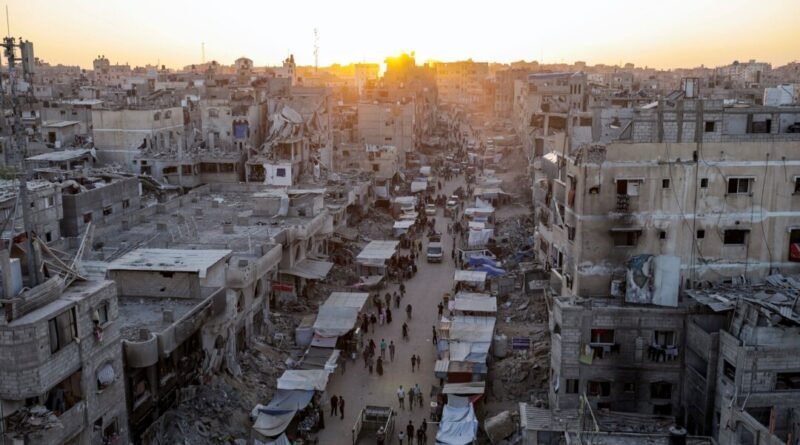Israel escalates attacks in Gaza as Hezbollah remains ambiguous on reducing rocket strikes.
Israel continued its attacks on Hamas in Khan Younis and Rafah as ceasefire talks hit a standstill amid controversy over the Gaza hospital director’s release.
On July 2, Israel intensified its assault on the Gaza Strip, targeting areas in Khan Younis and Rafah in the southern region. The Israeli army had instructed residents to evacuate parts of these cities the day before.
Eight Palestinians were killed and many others were wounded, according to Gaza’s health authorities, which are under Hamas control and do not differentiate between civilians and Hamas fighters.
The United Nations described the evacuation as the largest one ordered by Israel in the Gaza Strip since October, which involved 1.1 million people. This time, 250,000 individuals were impacted, leading to increased suffering and humanitarian needs, as stated by a UN spokesperson.
Meanwhile, Hezbollah persisted in demanding a ceasefire in Gaza in exchange for halting its relentless bombardment of northern Israel that began in May and continued in June. This bombardment resulted in the evacuation of 61,000 Israelis from 43 northern communities, with most unable to return home.
Hezbollah’s deputy leader, Sheikh Naim Kassem, did not specify the group’s response if Israel eased pressure in Gaza without a formal ceasefire.
Concerns about a wider conflict heightened as the Israel Defense Forces (IDF) and Hezbollah engaged in frequent cross-border strikes while the IDF prepared for potential battle in the north amid efforts to end the conflict with Hamas.
In June, Hezbollah conducted 288 attacks on Israel, down from 320 in May, with a shift towards fewer anti-tank weapons and more suicide drones. The Alma Research and Education Center noted Hezbollah’s military actions targeting Israeli military installations and civilian areas in northern Israel.
The IDF faces mounting pressure to act in the north to enable residents to return home. In Gaza, ceasefire negotiations have stalled, and Israel must address public demands to secure the release of remaining Hamas hostages and establish a post-war governance strategy.
Israel aims to establish an alternative power structure in Gaza not linked to the current administration, possibly involving local families. However, reports suggest that these families are hesitant to engage due to concerns about potential retaliation from Hamas.
Prime Minister Benjamin Netanyahu admitted to outreach efforts to Gaza clans, which were thwarted by Hamas. The release of Gaza’s main hospital director, seven months after a military raid, sparked controversy as the director alleged mistreatment while in custody.
Mr. Netanyahu and his coalition members criticized the release, labeling it as a grave mistake and moral lapse. The release may have been prompted by overcrowding in Israeli prisons holding Gaza detainees.
Contributions to this report by The Associated Press and Reuters.



